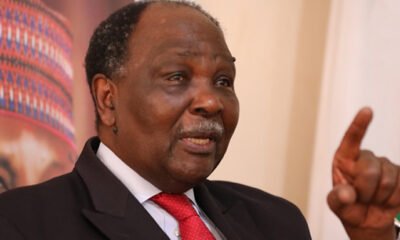Politics
Queen Elizabeth’s Death: Revisiting Chinua Achebe’s ‘There was a Country’

By Joy Oti
“if anyone expects me to express anything but disdain for the monarch who supervised a government that sponsored the genocide that massacred and displaced half my family and the consequence of which those alive are still trying to overcome, you can wish upon a star”
These were the words of Professor Uju Anya, a professor of applied linguistics, critical sociolinguistics, and critical discourse studies on the heels of the demise of Queen Elizabeth II.
The recent demise of Queen Elizabeth II aroused mixed reactions from leaders as well as people across the globe. To leaders, around the world, her death heralds the end of an era of long standing leadership but to Prof. Anya, the queen reminds her of the massacre that befell the eastern region from 1967-1970.
As condolences keep pouring in celebrating and commending the queen’s leadership, Prof Uju Anya does not share their sentiments as she made this bold statement that stirred the twitter space.
Uju’s stance brings to mind Chinua Achebe’s “There was a country”, his personal account of the civil war and the excruciating experience by the eastern region during the war.
He recounts that corruption, bad leadership and ethnic oppression marked the leadership of Nigeria barely 7 years after it was granted independence by Britain.
The Igbos that resided in other parts of Nigeria had been on the receiving end of ethnic oppression hence the reason they decided to break away from Nigeria to form a safe haven “The Independent Republic of Biafra” to keep them far from marginalization.
This decision was greeted with great resistance that culminated into the civil war that lasted for 3 years under the military head of state Gen. Yakubu Gowon.
You might ask, how was the queen involved in the civil war?

Chinua Achebe
Well, after granting independence to Nigeria upon milking it, the Britons still had interest in oil and as such to protect its interest, it provided supplies such as medical aid, food and machineries to the Nigerian Government to help them win the fight against Biafra.
This was done under the supervision and approval of the Queen of England, Queen Elizabeth II.
Eventually, hunger, death and malnutrition forced Biafra into submission.
The east, though had their strong reasons lost more than they bargained for thus leaving a sour taste and a sense of bitterness in their hearts.
52 years after, some groups in the southeast still clamor for Biafra and have put in place measures to see that the dreams of their forefathers come to fruition.
Any way, it was not only the Southeast that suffered the war. The civil war also affected the Nigerian government, its impacts can still be felt to this day even after all this time as the east has not forgotten neither has the emotional impact subsided.
READ ALSO: Why It’ll Be Disappointing To Fail With Labour’s Support – Obi
With this in mind, it is safe to note that war is never a friend but a foe. It often leaves both parties counting their losses that can never be recovered as the life and future of the people in the eastern region had to be put on hold to pursue a cause.
Ernest Hermingway concurs as he says “Never think that war, no matter how necessary, nor how justified is not a crime”.



























Onabengha Oweh
September 25, 2022 at 5:03 pm
And the whole world is happy revering the death of a mornach who supervised the genocide of Biafrans and the killings of Nigerians on the other side? What a Queen-King over a country that seem like it is. “There was a country” Achebe.